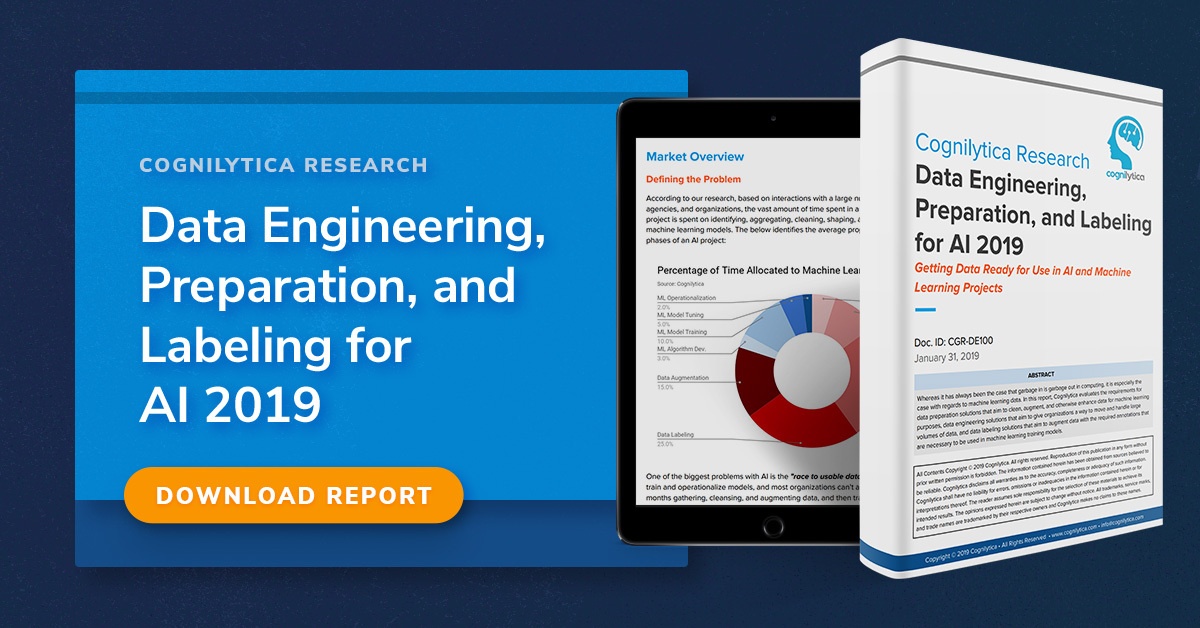.jpg?width=1000&name=shutterstock_1069363892%20(1).jpg)
Technology is transforming how we live and work in ways we never thought possible. At the center of those changes is artificial intelligence (AI), which has the potential to fulfill the promises of our favorite buzzwords: data-driven, on-demand, automated, real-time, predictive, integrated. Already, we are seeing breakthroughs in machine learning (ML), robotics, quantum computing, nanotechnology, and the Internet of Things (IoT).
Indeed, the Fourth Industrial Revolution is upon us. In his book by the same name, World Economic Forum (WEF) Founder and Executive Chairman Klaus Schwab coined the term and gave us a preview of what’s possible for the future: improvements in quality of life, greater equality among people, and higher income levels.
Yet, realizing those benefits is no easy task, as almost any founder, CTO, ML engineer, or data scientist can attest. Challenges abound, from AI bias to data responsibility, so global cooperation will be an important factor in how we maximize benefits and minimize risks in this new age of technology. And, as more collaborative partnerships form across government, business, academia, and global organizations, it seems we’re all beginning to understand the awesome responsibility that comes with AI’s seemingly limitless potential.
Here are developments we’ve noticed in AI-related partnerships and thought leadership:
-
WEF created its Centre for the Fourth Industrial Revolution to bring together global stakeholders across industries to ensure that these technological advances benefit people and the planet. The Centre is a “global hub of expertise, knowledge-sharing, and collaboration” where policymakers, international organizations, and technology companies can work together to maximize the benefits of science and technology for humanity. At January’s World Economic Forum in Davos, Switzerland, Salesforce CEO Marc Benioff raised concerns about the possibility of a new tech divide, and declared AI a “new human right.”
-
Last year, the U.S. Department of Defense (DoD) tasked its Defense Innovation Board (DIB) to draft guiding principles for the ethical use of AI in national security. Earlier this month, the DoD hosted a public listening session at Carnegie Mellon University to collect public feedback on the draft. The DIB will submit its recommendations later this year.
-
Facebook, Microsoft, IBM, Amazon, Apple, and Google founded the Partnership on AI to "study and formulate best practices on AI technologies, to advance the public's understanding of AI, and to serve as an open platform for discussion and engagement about AI and its influences on people and society." About half of its 80+ partners across 13 countries are non-profit organizations.
At CloudFactory, we work with innovators whose teams are designing technology to solve problems and disrupt industries born from the first, second, and third industrial revolutions. We know talent is equally distributed around the world, but opportunity is not. We believe that people will always be an important part of an automated workforce. And, we envision a future where talented people across the globe can connect to the digital economy and benefit from the advances of the fourth industrial revolution.
To learn how CloudFactory is leading workforce disruption in the fourth industrial revolution, read Outsourcing Outsmarted: How CloudFactory is Changing an Outdated Industry.
Here’s a brief look at the progression from the first to the fourth industrial revolution.
|
When |
What Happened |
Advances in Technology |
|
|
1760-1840 |
Rural societies became industrial and urban |
|
|
|
1870-1914 |
Steel, oil, and electricity were used to create mass production |
|
|
|
Began in 1969 |
Digital technology was introduced |
|
|
|
Klaus Schwab coined the term in 2017 |
Technology fundamentally alters the way we live and work |
Breakthroughs in:
|



